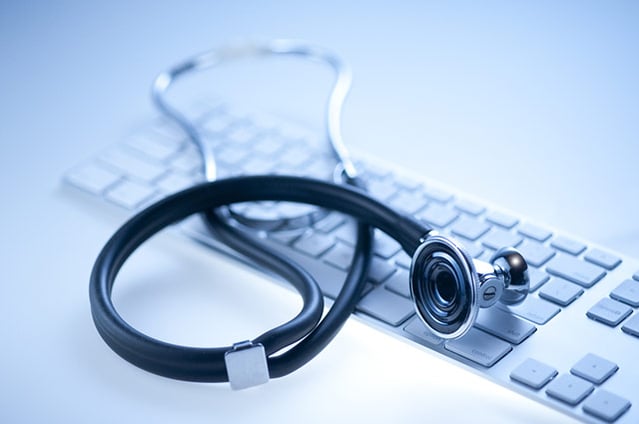
No one today can question the impact telehealth and remote-care healthcare technology has in aiding patient care during this current coronavirus pandemic. In a time where distance is key in the healing process, patients who would otherwise not receive medical attention now have access to help even in quarantine because of this advanced technology.
The question now is this: Is technology in the healthcare industry advanced enough?
Today’s crisis is rapidly revealing how behind we are in connecting patients in need, no matter their location, to these technological advancements. We are fortunate today that many healthcare software companies are working overtime to close this gap, fast-track releases of life-changing products to the market, and feature updates that could impact millions.
While speed to market is crucial during emergency situations, it can also be detrimental if corners are cut during the testing process. Promising advanced technology that doesn’t deliver or is inaccurate can cost lives and is worse than not having access to that technology at all.
With the right testing protocols in place, your healthcare software application can meet the demanding needs of our current situation and, more importantly, promote wellness and save more lives. Ensure that your product is truly ready for today’s crisis and beyond by incorporating these best QA testing practices.
Security Testing
Remote-care and telehealth company employees must be able to access their healthcare applications from anywhere, meaning there’s a greater chance of vulnerability for their software. And, because these systems hold sensitive patient information as well as critical organizational data—health records, account details, payment information, identity data—healthcare applications are constantly a target for security breaches or hacking.
Safeguard your healthcare application means executing test cases focused on:
- PHI Protection
Vulnerabilities and potential risks associated with protected health information (PHI) can be uncovered through security testing. With the right strategic security tests in place, you QA team can reveal all the ways your application is susceptible to cyber attacks, including decryption attempts. Furthermore, completely securing PHI ensures that your application meets HIPAA compliance. - Safeguarding Data Transmission
Remote-care and telehealth companies rely on the application’s ability to support data exchange across mobile devices, email and cloud storage. QA teams can perform tests that verify the encryption and protection of transmitted data against any unauthorized access at every stage of that exchange. - Authenticating Data Storage
Both transferred and stored data must be secured. Security testing is designed to verify the safety of your data storage techniques, be it encrypted or plain text. Skilled QA teams develop test cases analyzing the system’s current security solution, the software’s encryption technique and your policy-based data management. - Confirming Identity & Access Management
Attackers seek any security loophole that allows them into your healthcare application. With proper security testing in place, your QA team can detect any gaps within the application that allows for unauthorized system entry. - Validating Security Techniques
Does the system’s two-way authentication and/or encryption algorithm completely protect patient information? Testing that focuses on the security mechanisms in place can uncover any weaknesses in your implemented safety measures.
Automation Testing
Your healthcare application likely needs to process a vast number of transactions and an enormous amount of patient information daily. Ensuring that this data is handled properly means executing tests that analyze data sets of varying complexity. And even with the best of intentions, QA testers often do not have the time or capacity to carry out these high-demand test cases or confirm accurate results.
Automation testing is key in healthcare software application testing because it is designed to accurately and concurrently perform large tests for every possible scenario, saving valuable time and resources. Automated tests are ideal for the following types of testing:
- Data-driven Testing
Can your healthcare application handle patient information properly in all user-volume instances? - Authorization & Authentication Validation
Can all the healthcare application’s security features perform as expected, regardless of the situation? - Repetitive Testing
Can you confirm the accuracy of your application’s processes, no matter how many test cases are executed? - Multi-Platform Verification
Can your healthcare software perform bug-free across all platforms, devices and browsers? - Report Verification
Can your team quickly pinpoint and resolve any issue within the healthcare application?
Integration Testing & API Testing
Your healthcare software application is an intricate system with a complex architecture of modules and sub-modules. And, your product must support a significant amount of communication across subsystems. If inappropriate data transmission remains undetected, this can manifest into grander issues that can put your software, patient outcomes and brand in jeopardy.
To prevent this, skilled QA teams always include integration testing between third-party applications to ensure successful patient report generation and revenue generation. API testing in particular can confirm that your healthcare software application meets complex usage, security and regulatory compliance requirements. Integration testing and API testing are both designed to identify problems early in the life-cycle, securing patient data and enabling essential mobile usage.
Performance Testing
It is essential for the telehealth and remote-care worker to have access to your healthcare software product online and on mobile apps. These medical professionals need on-the-go access to vital information on patients housed within your healthcare application. They need the system to operate reliably, smoothly and quickly, regardless of location or network performance. And, they need the information output to be accurate.
This is something that your healthcare product cannot guarantee unless your QA team commits to performance testing. Develop and execute test cases that analyze the application’s speed, stability and scalability by focusing on the following test areas:
- Simulate an increase in traffic, then measure the performance, stability and responsiveness of all servers
- Check the performance of the application on different networks (2G, 3G, 4G, etc.) and Wi-Fi
- Analyze and create reports detailing the health and capacity of servers
User Testing
Medical professionals in the remote-care and telehealth industry rely on your healthcare product to get the answers they need to save lives. Any area within the user experience that is not easy or intuitive can cause delays in data retrieval which can crucially impact the well-being of their patients.
Prevent any usability issues by integrating user testing within your testing practices. Structure test cases that confirm that the healthcare application is easy to use, intuitive and supports a short learning curve. This includes verifying that the design format of the interface remains consistent throughout the user’s expected experience with the product. The QA team must have a thorough understanding of product expectations from a user’s perspective in order to develop and perform strong test cases.
Meeting HIPAA & Industry Regulatory Requirements
Strict privacy and security regulations enforced by governing bodies like HIPAA and the FDA are in place to preserve the quality of care and the security of patient data. In order to assure all users of your application that patient information is safe and secure to, it is crucial for your software application to comply with these stringent rules and regulations.
Yet time and again, healthcare software testing falls short of adhering to industry security standards. Improper testing on the inter-operability of electronic health information can put entire data systems in danger once pushed to market. Security issues within the software can remain undetected by QA testers who are often not well-informed on healthcare requirements.
Your team can prevent these costly mistakes by setting up these security standards within your testing process:
- To confirm application compliance, test each and every healthcare standard required to be supported
- Perform end-to-end testing to confirm that sensitive information within the software is secure
- Document all testing processes and their outcomes
- Educate all of your QA testers on healthcare standards or work with a trusted partner with healthcare domain expertise
Companies today must meet more demands than ever when delivering healthcare software to market. Ensure that your product exceeds industry and user expectations by working alongside a professional QA services provider like QASource. Our team of healthcare domain experts are skilled in all industry standards to help you meet stringent healthcare regulations and release a higher quality product you can be confident in. Learn more and get in touch with a QASource expert today!






